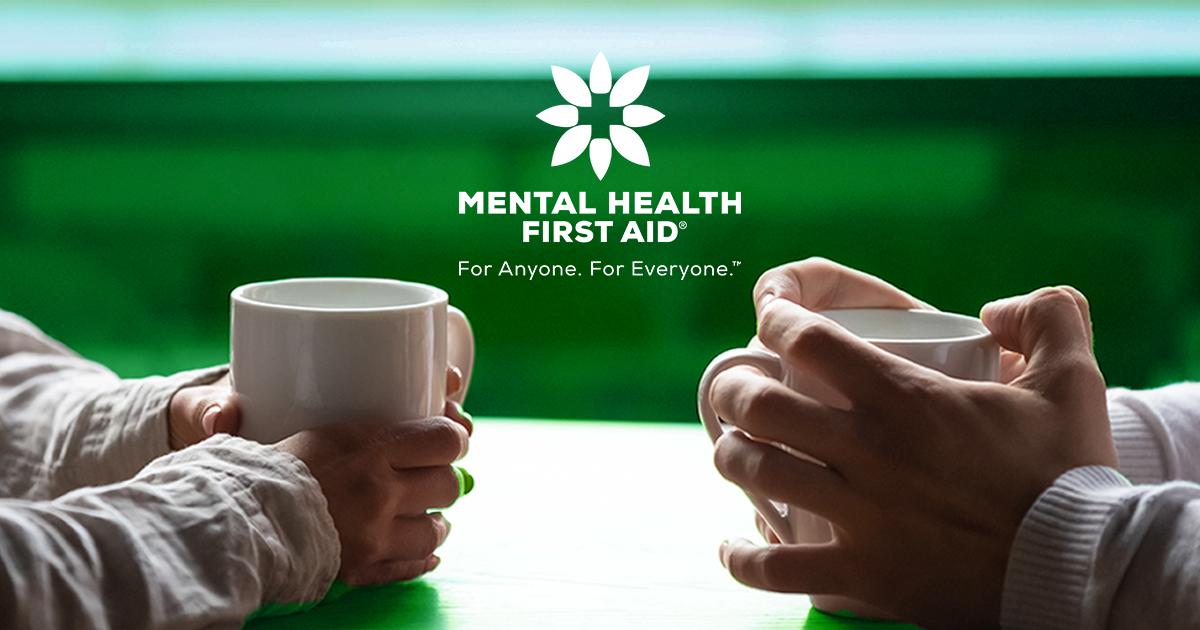Mental Health in Rural and Remote Communities

Mental illness is more common than people realise and with 1 in 5 Australian adults experiencing a mental illness in any given year, it’s highly likely that you know people who have experienced or are experiencing a mental health problem. Rural and remote communities face a unique set of mental health challenges compared to their urban counterparts.
Research has shown that people in rural and remote communities experience poorer mental health outcomes and are at greater risk of suicide. This is in part due to disparity that often exists in terms of the availability of mental health supports in rural areas.
Meaningful relationships with our friends, family, neighbours, and community members play an important role in contributing to our happiness, health, and well-being, and that of those around us. Through these relationships we are also well placed to notice if someone we know is going through a difficult time. However, while many people may recognise the signs of a mental health problem, they often don’t know how to approach the person or provide appropriate support. Many people feel uncomfortable and unprepared, and this can mean the conversation never starts at all. But with appropriate training, everyone can help by recognising the signs that someone isn’t coping, offering support to listen to their problems, and providing pathways to additional support if needed. Mental Health First Aid® (MHFA™) courses teach participants how to recognise the signs and symptoms of mental health problems or of a crisis such as thoughts of suicide.
Supporting friends, neighbours and community members
For over 20 years Mental Health First Aid has helped Australian communities take active steps to support their people’s mental health and create more resilient, mentally healthier communities where everyone is supported and encouraged to talk openly about mental health. MHFA training courses teach mental health literacy, as well as the skills and confidence needed to approach and support a person who may be experiencing a mental health problem. Those trained in Mental Health First Aid can encourage help-seeking behaviour and provide support when professional help is not immediately or readily available. People who complete our early intervention, evidence-based courses go on to become empowered members of the community who can recognise, connect, understand, and respond to others who are experiencing mental health problems. This improves outcomes for everyone by reducing the stigma and discrimination often felt by those experiencing mental health problems and by creating a more inclusive community that welcomes everyone with respect and knows how to help when help is needed.
How communities can help
Around Australia, communities are working to embed Mental Health First Aid training into schools, local government, sporting teams and other community groups.
Victoria’s Country Fire Authority (CFA) delivers Mental Health First Aid training as part of their comprehensive mental health literacy program, with overwhelmingly positive feedback from participants.
Cara McIntyre, CFA Wellbeing Consultant says:
“Members can apply Mental Health First Aid knowledge in all parts of their lives, not just in CFA roles.”
Partnering with rural communities, Live4Life has a particular focus on empowering and supporting young people through Youth and Teen Mental Health First Aid training. Annie Rowland, Live4Life Community Engagement Coordinator, and qualified Master Youth and Teen MHFA Instructor explains:
“We have a vision that all rural communities across Australia will be empowered to improve and invest in young people’s mental health and reduce youth suicide.”
Sporting clubs are often institutions that knit communities together. In 2010, the Hawthorn Amateur Football Club established its ‘Wings’ Program in response to an identified need for local mental health education, suicide prevention and pathways to care. Wings Program Founder and Former Club President, Pat Clancey states:
“In what is a huge issue in society, mental illness should be front of mind for all sporting clubs and organisations, particularly considering their demographic.”
Richmond Institute - the educational arm of the Richmond Football Club - through its partnership with Swinburne University of Technology, has been embedded Mental Health First Aid training into its Diploma of Sport (Sport Development)/Diploma of Leadership and Management, ensuring the next generation of sports leaders are equipped with mental health first aid skills.
“Someone may take part in MHFA training through their workplace or sports club, but the beauty of mental health first aid is that the skills can then be applied in multiple settings. You never know when you may have a conversation with someone that may save a life,” explains David Bastian, Richmond Institute’s Education and Training Manager.
There are many ways in which communities can help maintain the well-being of their members. For example:
- Having community leaders who understand and champion mental health – often it takes just one person with a vision to start a positive change.
- Having members of the community trained in Mental Health First Aid.
- Looking for opportunities to embed mental health supports into community life - such as sporting and recreation clubs, businesses and volunteer groups, or community hubs - for improved access.
Community can play a crucial role in breaking down stigma and fostering positive attitudes toward mental health. A single conversation could change a life and learning the right skills can make the difference. Now imagine if we all had those skills.
To find out more about how your community can experience the success that these communities have had with MHFA, visit https://community.mhfa.com.au/one-in-ten/
Mental Health First Aid – For Anyone, For Everyone.



